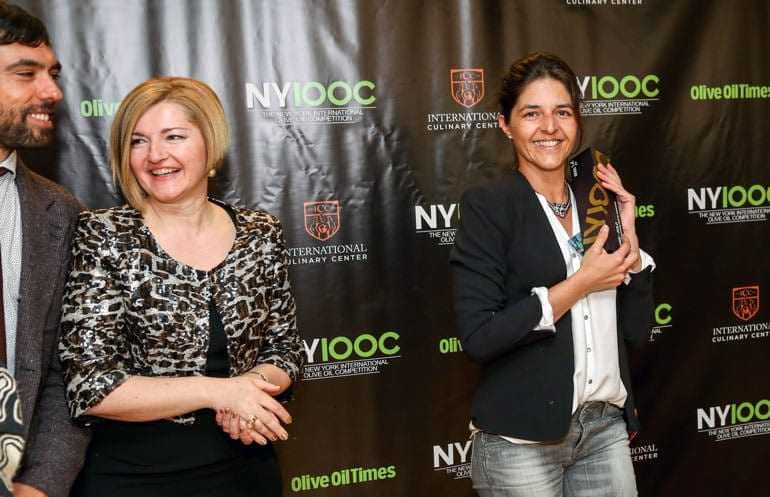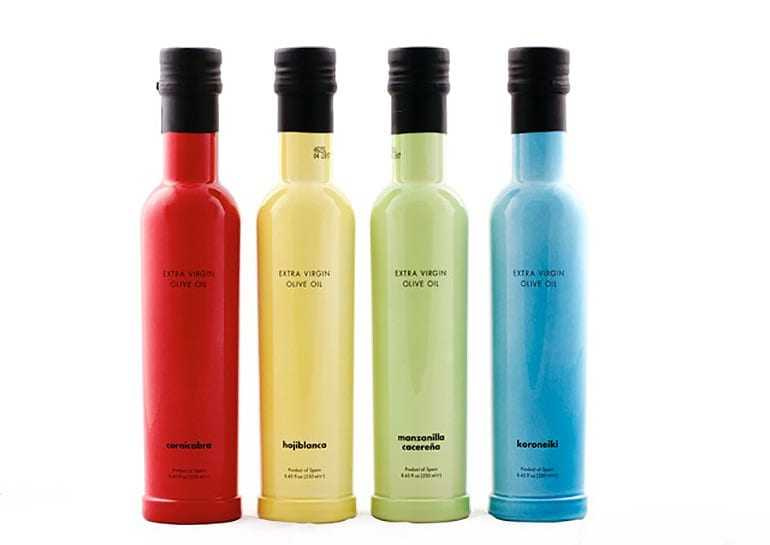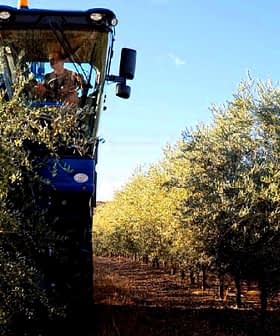Though no one would doubt his level of intellect, it might seem a bit of a stretch to imagine that an aerospace and aviation expert could become an award-winning extra virgin olive oil purveyor in just one year. Yet that’s exactly what Spain’s Alfonso Palazuelo did. As director of the Compañía Española de Técnica Aeronáutica, Palazuelo has long been traveling the world. Throughout frequent visits to the United States, driven by his “side” passion for gastronomy, he began to notice an absence of the high-quality olive oils enjoyed by Spanish chefs coming out of American kitchens.
So in May of 2014, Palazuelo decided to try his hand at the world of Spanish olives and their nectar. He hired the enthusiastic Maria Ubago to spearhead the entire operation, do a comprehensive study of Spanish regional growers, and select the cream of the crop to bring together under the name Albea Blanca.
“His dream was to have his own superb EVOO collection from different parts of Spain,” she said in a recent interview with Olive Oil Times. “So he contracted me to develop this brand. I spent a year studying olive groves, olive varieties, and high-tech olive mills, and I traveled around both Spain and Italy, visiting with well-known connoisseurs, producers, machinery manufacturers, and tasters in the sector.”

Albea Blanca’s Maria Ubago (right) accepted her awards in New York
Ubago was on a mission to unearth small growers who have the utmost respect for the environment and who produce an organic product using only the freshest fruits under the stringent, high quality, whole process requirements of the industry. To extract the true essence of an olive cultivar and its singular attributes and essence, she said, means that “each person, each step, every piece of the production process” is critical to the finished product.
Of the hundreds of indigenous olive varieties in Spain, only a few are well known. For Albea Blanca, “I selected four varieties,” Ubago explained. “All of them have stood up well through stringent chemical tests, showing very high amounts of natural antioxidants critical to both the nutritional value and the oil’s shelf-life stability.
Albea Blanca’s first efforts yielded just 3,000 liters with capacity to expand going forward. The company’s Cornicabra hails from a grove in Los Navalmorales, on the north side of Cabañeros Natural Reserve in Toledo (a province in Central Spain). Also sourced from a natural reserve is their Hojiblanca, made from fruit grown in the mountains of the southeast province of Córdoba.

Four for Four: Albea Blanca’s award-winning extra virgin olive oils.
The indigenous Greek Koroneiki olive also flourishes in Spain, and Ubago found a grower in the small town of Casasbuenas in the province of Toledo, whose ancient olive groves are set alongside a landscape rife with almond trees. All three of the oils took Gold Awards at this year’s New York International Olive Oil Competition (NYIOOC). Their fourth entry, a Manzanilla Cacereña, produced from olive trees from a small grove in Sierra de Gata bordering Portugal, took a Silver Award.
After settling on the collection, “We sent the oils to the NYIOOC just to see if it really was a good selection. We thought so, but it is better when an international, expert tasting panel recognizes it!”
“What a surprise when all of them won an award!” Ubago said. “I cried, because it was a recognition of my hard work in developing the brand. My boss felt so happy and proud. It was a dream come true, a rewarded investment, and an opportunity to build the brand. We like the American market and its demanding consumers,” said Ubago.








